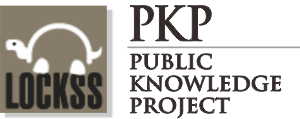State Islamic University (UIN) Walisongo, Semarang - Indonesia
THE RECONSTRUCTION OF ISLAMIC THEOLOGY IN THE UNITY OF SCIENCES
As a result of the processes of thinking on theological concept, Islamic theology may change according to its social dynamics. In the contemporary, theology can be studied by interdisciplinary sciences, which eventually theology became the source of the birth of some sciences. Hence, the science produced by the understanding of monotheism will produce peaceful religion for the universe (raḥmatan li ’l-‘ālamīn). The data presented in this article derived from the study applying literature review on the related topics of writing. Applying qualitative approach, this article showed that religion and science have a point of tangency. Science helps to facilitate human beings in their religious living. Concerning to faith, science activities can strengthen the faith and arise the motivation to express something in recognizing more toward God as the center of unity of existence (tawḥīd). In order to integrate the belief and sciences, it is needed the effort of islamization of science and the effort to reconstruct theology into a format that make it possible to dialogue with the reality of current development of thinking.
Keywords: Islamic theology; reconstruction; unity of science; integration
- Amin Abdullah, Islamic Studies di Perguruan Tinggi: Pendekatan Integratif-Interkonektif (Islamic Studies in Higher Education: Integrative-Interconnective Approach), Yogyakarta: Pustaka Pelajar, 2010.
- al-Attas, Syed Muhammad Naquib, in Wan Moch Nor Wan Daud, The Educational Philosophy and Practice of Syed Muhammad Naquib al-Attas, Indonesian Edition, Bandung: Mizan,1998.
- Azyumardi Azra, “Reintegrasi Ilmu-ilmu dalam Islam” (Reintegration of Sciences in Islam) in Zainal Abidin Bagir (eds) Integrasi Ilmu dan Agama, Interprestasi dan Aksi (Integration of Science and Religion, Interpretation and Action), Bandung: Mizan, 2005.
- E. Kamadiningrat, Teologi dan Pembebasan: Gagasan Islam Kiri Hassan Hanafi (Theology and Liberation: Islamic Left Ideas of Hassan Hanafi), Jakarta: Logos, 1995.
- Haryatmoko, Etika Politik dan Kekuasaan (Ethics of Politics and Power), Jakarta: Kompas, 2003.
- Hassan Hanafi, Min al-‘Aqīdah ilā Thaurah (From Aqidah to Revolution), Kairo: Maktabah Matbuli, 1991.
- Hassan Hanafi, Islamologi Teologi Statis ke Anarkis (Statical Theology to Anarchic Islamology), Yogyakarta: LKiS 2007.
- Kazuo Shimogaki, Kiri Islam Antara Modernisme dan Postmodernisme: Telaah Kritis Pemikiran Hassan Hanafi (Islamic Left between Modernity and Postmodernity: a Critical Thought of Hassan Hanafi), Yogyakarta: LKiS, 2001.
- Kuntowijoyo, Islam sebagai Ilmu (Islam as Science), Jakarta: Teraju, 2005.
- Madjid Fakhry, The History of Islamic Philosophy, New York: Columbia University Press, 1983.
- Moh. Natsir Mahmud, Landasan Paradigma Islamisasi Ilmu Pengetahuan (The Paradigmatic Bases for Islamization of Sciences), Nurman Said, Wahyuddin Halim Muhammad Sabri, (eds.), Jakarta: Gramedia, 1986.
- Rosnani Hasyim, Gagasan Islamisasi Kontemporer: Sejarah Perkembangan dan Arah Tujuan (The Ideas of Contemporary Islamization: History of Development and Destination), Jakarta: INSIST, 2005.
- Zainal Abidin Bagir, Integrasi Ilmu dan Agama (Integration of Science and Religion), Bandung: Mizan, 2005.
 Copyright (c) 2015 Yusriyah Yusriyah
Copyright (c) 2015 Yusriyah Yusriyah

This work is licensed under a Creative Commons Attribution-ShareAlike 4.0 International License.



